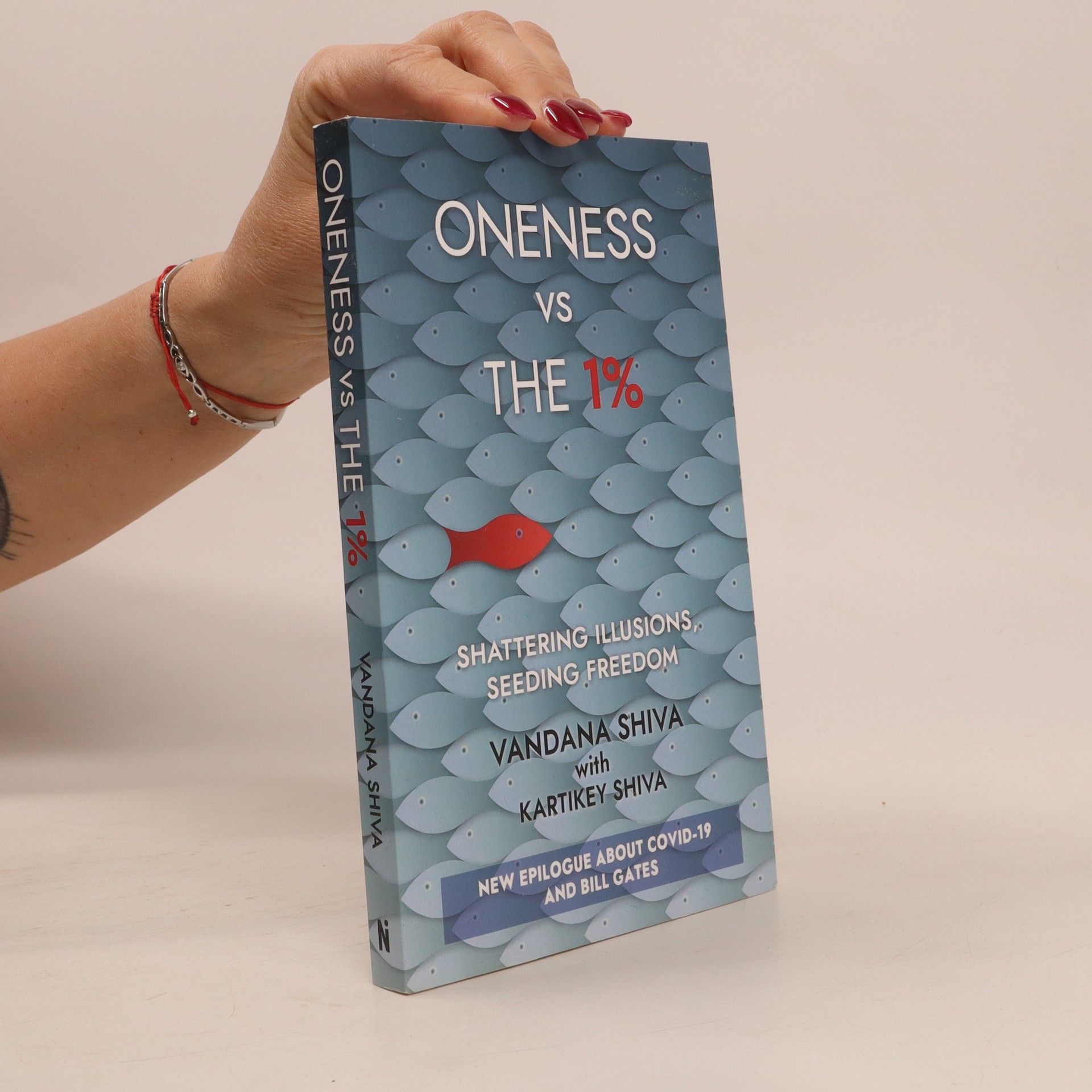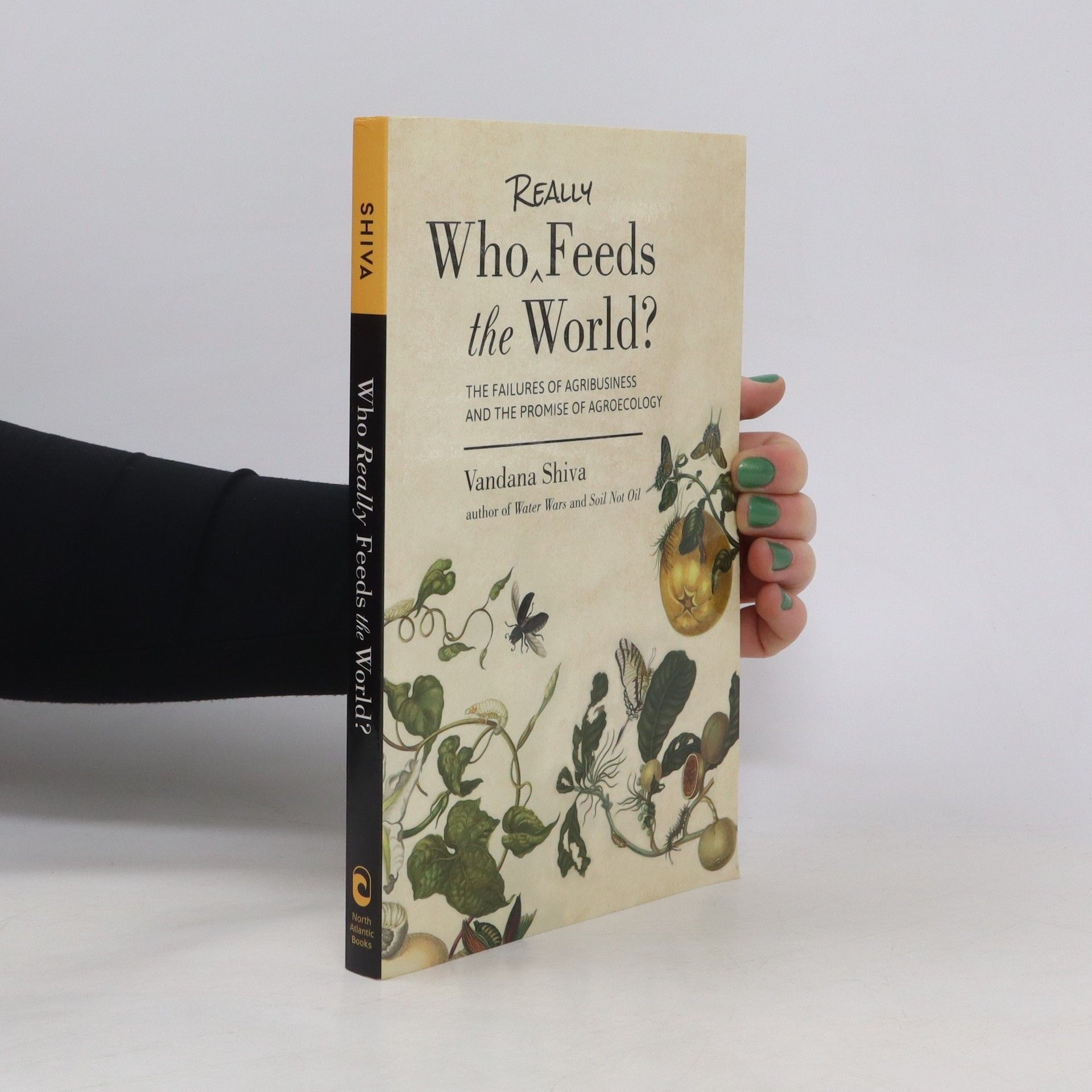Who Really Feeds the World?
- 181pages
- 7 heures de lecture
A radical new vision for global food production, from one of the world's most iconic environmental thinkers.
Figure centrale du mouvement altermondialiste et une voix majeure de l'écoféminisme mondial, le travail du Dr. Vandana Shiva défend les droits humains, l'écologie et la conservation. Son parcours intellectuel, initialement ancré dans la physique, s'est rapidement orienté vers des préoccupations écologiques pressantes. Elle explore les liens complexes entre la nature et la société, plaidant pour un monde plus durable et équitable.







A radical new vision for global food production, from one of the world's most iconic environmental thinkers.
A rallying cry for a more just and sustainable future, which remains just as trenchant, and as vital, as it was when it was first published.
This impressive book celebrates the coming together of two well-known critics of Western philosophy and science. From their respective backgrounds in social science and physics, Maria Mies and VAndana Shiva write about the concerns which unite them as women.Theirs is a powerful critique of the emnacipatory ideas of the Enlightenment, which measured civilizationin terms of domination of Nature. They argue that feminism should see linkages between patriarchal opression and the destruction of Nature in the name of profit and progress. Women - in many parts of the world the principal farmers, food-providers, and nurturers of children - are the hardest hit by technological excess and environmental degradation.Through examining issues such as the growth of new reproductive technologies, 'development', indigenous knowledge, globalization, and the concepts of freedom and self-determination, teh authors provide a vision of a different value system. Ecofeminism is after all a 'new term for an ancient wisdom'. Their book is a powerful plea for the rediscovery of such wisdom by feminists and ecologists everywhere.
Debunking the notion that our current food crisis must be addressed through industrial agriculture and genetic modification, author and activist Vandana Shiva argues that those forces are in fact the ones responsible for the hunger problem in the first place. Who Really Feeds the World? is a powerful manifesto calling for agricultural justice and genuine sustainability, drawing upon Shiva’s thirty years of research and accomplishments in the field. Instead of relying on genetic modification and large-scale monocropping to solve the world’s food crisis, she proposes that we look to agroecology—the knowledge of the interconnectedness that creates food—as a truly life-giving alternative to the industrial paradigm. Shiva succinctly and eloquently lays out the networks of people and processes that feed the world, exploring issues of diversity, the needs of small famers, the importance of seed saving, the movement toward localization, and the role of women in producing the world's food.
Widespread poverty and malnutrition, an alarming refugee crisis, social unrest, economic polarisation have become our lived reality as the top 1% of the world's seven-billion-plus population pushes the planet-and all its people to the social and ecological brink. In Oneness vs. the 1%, Vandana Shiva takes on the Billionaires Club of Gates, Buffett, Zuckerberg and other modern Mughals, whose blindness to the rights of people, and to the destructive impact of their construct of linear progress, have wrought havoc across the world.
The book addresses the urgent issue of environmental and health hazards caused by corporate negligence, urging readers to recognize the dangers of pollution and toxins. It emphasizes the need for education and activism, inspiring a collective movement against profit-driven practices that endanger both human health and the planet. Through well-researched insights, it calls for awareness and action to combat these pressing challenges.
Focusing on the urgent need for sustainable living in the face of climate crises, the book emphasizes the importance of reconnecting with nature, particularly through our food systems. It advocates for a return to practices that honor the Earth and promote ecological balance, highlighting the critical relationship between humanity and the environment.
Authored by world renowned activist and environmental leader Vandana Shiva, Reclaiming the Commons presents the history of the struggle to defend biodiversity and traditional practices against corporate biopiracy and details efforts to realize legal rights for Mother Earth and achieve the vision of the universal commons and Earth as Family.
The book is an interdisciplinary synthesis of research and practice carried out over decades by leaders of the agroecology and regenerative organic agriculture movement. It provides detailed analysis of the multiple crises we face due to chemical and industrial agriculture, including land degradation, water depletion, biodiversity erosion, climate change, agrarian crises, and health crises. The book lays out biodiversity based organic farming and agroecology as the road map for the future of agriculture and sustainable food systems, both locally and globally. With detailed scientific evidence, Agroecology & Regenerative Agriculture shows how ecological agriculture based on working with nature rather than abasing ecological laws can regenerate the planet, the rural economy, and our health.